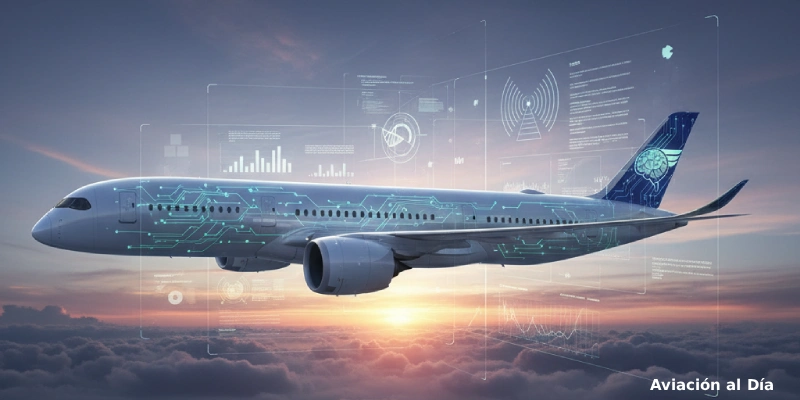The European Union Aviation Safety Agency (EASA) has taken a decisive step towards the safe integration of artificial intelligence in the aeronautical sector. As part of its AI Programme, it has published the Notice of Proposed Amendment (NPA) 2025-07, which is now open for public consultation for a period of three months.
This technical document provides guidance to the industry on how to establish “AI trustworthiness” in line with the requirements of Regulation (EU) 2024/1689, also known as the EU Artificial Intelligence Act, which governs high-risk systems.
First Step of RMT.0742: A Foundation for the Future
The publication of NPA 2025-07 marks the start of the RMT.0742 rulemaking task. This will be completed with a second proposed amendment planned for 2026, which will apply the current generic framework to the specific regulations of the various aviation domains.
The objective is to prepare the aeronautical community for future requirements related to AI-based assistance (Level 1) and human-system collaboration with intelligent systems (Level 2). This first proposal addresses key aspects such as AI assurance, human factors, and ethics.
→ EASA Validates Type Certification for Pratt & Whitney’s GTF Advantage™ Engine
Technical Scope: From Machine Learning to Generative AI
The proposed framework covers data-driven AI systems, including supervised and unsupervised learning. Furthermore, its future extension to technologies such as reinforcement learning, knowledge-based systems, hybrid approaches, and generative models is anticipated.
This flexibility will allow the regulation to adapt as technology evolves, thereby ensuring a solid and scalable foundation for the safe integration of intelligent solutions in aviation.
Sector Participation: A Collaborative Effort
EASA has expressed its gratitude to all sector stakeholders who participated in the rulemaking working group that supported the development of this initial proposal. The Agency has also stated its intention to continue working closely with these stakeholders in the development of the second NPA.
This regulatory advancement represents a milestone for European aviation, as it lays the groundwork for clear, technical, and adaptable regulation for the implementation of artificial intelligence in critical environments. The public consultation is open, and industry participation will be key to consolidating a robust framework aligned with the technological challenges of the future.
Related Topics
LATAM Resumes Flights Between Bogota and Caracas Starting February 23
LATAM Consolidates Rosario–São Paulo Route: Daily Service Starting in September
GOL Resumes São Paulo-Caracas Route Starting in March
LATAM Commits to AeroSHARK: “Sharkskin” Technology to Expand Across Entire Boeing 777 Fleet
Un apasionado por la aviación, Fundador y CEO de Aviación al Día.
